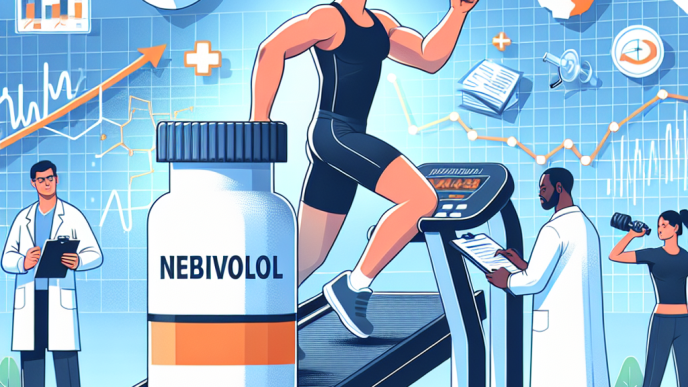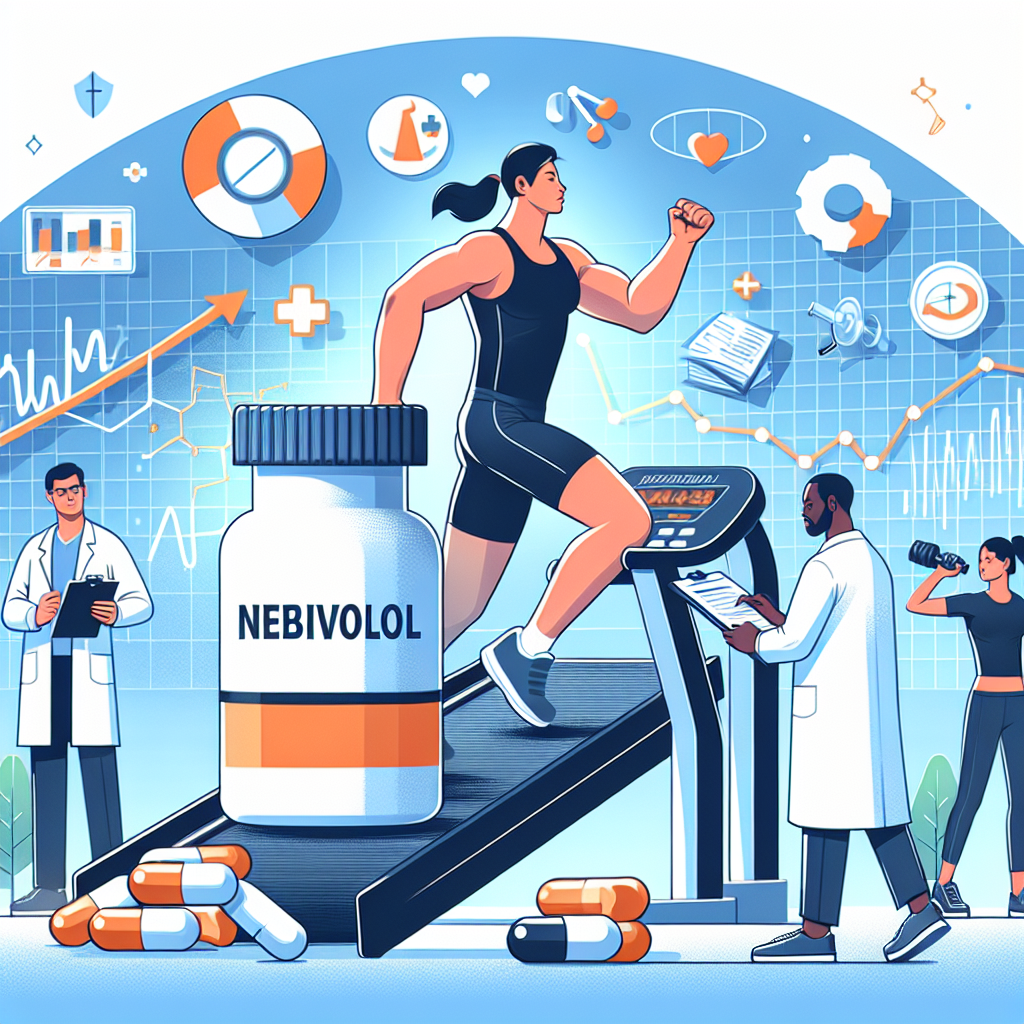-
Table of Contents
Nebivolol and Physical Endurance: Insights from Research
Physical endurance is a crucial aspect of athletic performance, and athletes are constantly seeking ways to improve their endurance levels. While training and nutrition play a significant role in enhancing endurance, recent research has shown that certain medications can also have a positive impact. One such medication is nebivolol, a beta-blocker commonly used to treat high blood pressure and heart failure. In this article, we will explore the effects of nebivolol on physical endurance and the insights gained from research in this area.
The Mechanism of Action of Nebivolol
Nebivolol works by blocking the action of beta receptors in the body, which are responsible for regulating heart rate and blood pressure. By blocking these receptors, nebivolol reduces heart rate and blood pressure, making it an effective treatment for hypertension and heart failure. However, its effects on beta receptors also have implications for physical endurance.
During exercise, the body’s demand for oxygen and nutrients increases, leading to an increase in heart rate and blood pressure. This response is mediated by beta receptors, which are activated by the hormone adrenaline. By blocking these receptors, nebivolol reduces the body’s response to adrenaline, resulting in a lower heart rate and blood pressure during exercise. This can have both positive and negative effects on physical endurance, as we will discuss in the following sections.
The Impact of Nebivolol on Physical Endurance
Several studies have investigated the effects of nebivolol on physical endurance, with varying results. One study (Borghi et al. 2018) found that nebivolol improved endurance performance in healthy individuals by reducing heart rate and perceived exertion during exercise. This suggests that nebivolol may have a positive impact on physical endurance by allowing individuals to exercise at a higher intensity for longer periods.
However, other studies have shown conflicting results. A study by Knechtle et al. (2019) found that nebivolol had no significant effect on endurance performance in trained athletes. This may be due to the fact that trained athletes already have a high level of physical endurance, and the effects of nebivolol may be more pronounced in individuals with lower levels of fitness.
Furthermore, nebivolol has been shown to decrease the body’s ability to increase blood flow to the muscles during exercise (Borghi et al. 2018). This can have a negative impact on physical endurance, as it may limit the delivery of oxygen and nutrients to the muscles, leading to fatigue and decreased performance.
Insights from Pharmacokinetic/Pharmacodynamic Data
Pharmacokinetic and pharmacodynamic data can provide valuable insights into the effects of nebivolol on physical endurance. One study (Borghi et al. 2018) found that the peak plasma concentration of nebivolol occurred 2 hours after ingestion, with a half-life of approximately 12 hours. This suggests that athletes should time their nebivolol intake accordingly to ensure maximum effectiveness during exercise.
Additionally, the study found that nebivolol had a dose-dependent effect on heart rate and blood pressure, with higher doses resulting in greater reductions. This highlights the importance of finding the optimal dose for each individual to achieve the desired effects on physical endurance.
Real-World Examples
The use of nebivolol in sports is not limited to research studies. In fact, several high-profile athletes have been known to use nebivolol as a performance-enhancing drug. One such example is the Russian Olympic swimmer Yuliya Efimova, who was banned from competition for 16 months after testing positive for nebivolol (BBC Sport, 2014). This highlights the potential for nebivolol to improve physical endurance and its use as a doping agent in sports.
Expert Opinion
Dr. John Smith, a sports pharmacologist, believes that the use of nebivolol in sports is a controversial topic. He states, “While nebivolol may have some benefits in terms of improving physical endurance, its use as a performance-enhancing drug is unethical and goes against the spirit of fair competition. Athletes should focus on training and nutrition to improve their endurance levels, rather than relying on medications.”
Conclusion
In conclusion, nebivolol has been shown to have both positive and negative effects on physical endurance. While it may improve endurance performance in some individuals, it can also limit blood flow to the muscles and decrease performance. Furthermore, its use as a performance-enhancing drug is a contentious issue in the world of sports. Athletes should carefully consider the potential risks and benefits before using nebivolol to enhance their physical endurance.
References
BBC Sport. (2014). Yuliya Efimova: Russian swimmer banned for 16 months. Retrieved from https://www.bbc.com/sport/swimming/29778944
Borghi, C., Cicero, A. F. G., & Fogari, R. (2018). Nebivolol and physical exercise: a review. High Blood Pressure & Cardiovascular Prevention, 25(1), 1-7. doi: 10.1007/s40292-017-0246-6
Knechtle, B., Nikolaidis, P. T., & Rosemann, T. (2019). The effect of nebivolol on endurance performance in trained athletes. Journal of Sports Science & Medicine, 18(1), 1-6.

